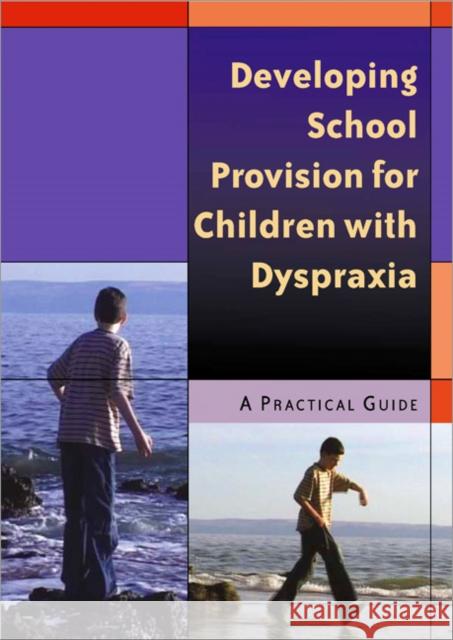Developing School Provision for Children with Dyspraxia: A Practical Guide » książka
Developing School Provision for Children with Dyspraxia: A Practical Guide
ISBN-13: 9781412910385 / Angielski / Miękka / 2005 / 144 str.
'A wealth of ideas and opinions providing usable ways forward for colleagues in mainstream to best support their pupils with DCD. I can wholeheartedly recommend it' - Afasic News This book has pulled together the expertise of a number of well-known professionals. We like the way Nichola Jones 'sets the scene', and outlines the child's main difficulties in the education environment... T]his is a very practical book offering plenty of ideas in an area where teachers often have less confidence to put a programme in place' - SATIPS This is an accessible overview of issues pertaining to the inclusion of children and young people wit Dyspraxia/developmental co-ordination disorder (DCD). Nichola Jones has drawn together contributions form a wider range of experts in the Dyspraxia field and produced a coherent account of how the needs of children can be met in ways that move beyond a focus solely based on individual interventions' - SENCO Update This is both an interesting and very useful book for any primary practitioner. It also provides enough references and ideas to encourage professionals to investigate and learn more about Dyspraxia/developmental co-ordination disorder. This is a book that will fit perfectly on your bookshelf' - Special Needs Coordinators file Nichola Jones shows how to plan a whole school approach to including children with dyspraxia and developmental co-ordination disorder in this short and accessible guide. It offers those in managerial and supervisory roles within schools and special education support services clear guidance on successful models of provision that have worked successfully in schools and LEAs. By focusing on the key aspects of service delivery and drawing on well known specialists within the field, the book includes sections on: -planning strategically for inclusive practice; -assessment; -handwriting; -gross motor programmes -adapting the PE curriculum; -supporting parents; -working with other agencies; -listening to the children involved. SENCOs, class teachers, LEA advisers and support agencies will find it an invaluable guide to successful inclusive practice.











